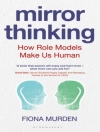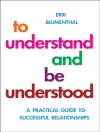With a focus on how to improve the effectiveness and cultural competence of clinical services and research, this authoritative volume synthesizes current knowledge on both the physical and psychological health of African Americans today. In chapters that follow a consistent format for easy reference, leading scholars from a broad range of disciplines review risk and protective factors for specific health conditions and identify what works, what doesn’t work, and what might work (i.e., practices requiring further research) in clinical practice with African Americans. Historical, sociocultural, and economic factors that affect the quality and utilization of health care services in African American communities are examined in depth. Evidence-based ways to draw on individual, family, and community strengths in prevention and treatment are highlighted throughout.
Winner–American Journal of Nursing Book of the Year Award
Inhaltsverzeichnis
I. Foundations of African American Health
1. The Strengths and Challenges Facing African Americans: Building Culturally Competent Practices with Communities and Families, Richard Briscoe, Gwen Mc Clain, Teresa Nesman, Jessica Mazza, and Maxine Woodside
2. Historical Trauma, Kristin N. Williams-Washington
3. Beyond Tuskegee: Why African Americans Do Not Participate in Research, Peter Edmund Millet, Stacey Kevin Close, and Christon George Arthur
4. Spirituality and the Power of Religion, Donelda A. Cook
5. Well-Being and Resilience, Ruth Chu-lien Chao
6. Evidence-Based Practice, Aminifu R. Harvey, Oliver J. Johnson, Annie Mc Cullough-Chavis, and Tamara M. Carter
7. Pharmacotherapy in African Americans, David C. Henderson
8. Engaging African Americans in Outpatient Mental Health Interventions, Reginald D. Simmons and Gretchen Chase Vaughn
II. Health Issues for African Americans
9. Obesity, M. Kathleen Figaro, Rhonda Be Lue, and Bettina M. Beech
10. Asthma, Michelle M. Cloutier
11. Diabetes, M. Kathleen Figaro, Verla M. Vaughan, and Freida Hopkins Outlaw
12. Cardiovascular Disease, Charles H. Hennekens, Wendy R. Schneider, and Robert S. Levine
13. Cancer, Derrick J. Beech
14. Tobacco Use, Tamika D. Gilreath, Guy-Lucien Whembolua, and Gary King
15. Anxiety, Angela Neal-Barnett, Lori E. Crosby, and Bernadette Blount Salley
16. Attention-Deficit/Hyperactivity Disorder, Jacquelyn Duval-Harvey and Kenneth Rogers
17. Major Depressive Disorder: Meeting the Challenges of Stigma, Misdiagnosis, and Treatment Disparities, Rahn Kennedy Bailey, Holly L. Blackmon, and Francis L. Stevens
18. Schizophrenia, William B. Lawson and Shana Jeanelle Gage
19. Suicide, Donna Holland Barnes
20. Child Maltreatment, Brenda Jones Harden and Jamell White
21. Intimate Partner Violence, Jaslean J. La Taillade, Robert L. Hampton, Marcus Pope, and April R. Mc Dowell
22. Pathways to Prison, Deborah J. Burris-Kitchen
Epilogue, Robert L. Hampton and Thomas P. Gullotta
Über den Autor
Robert L. Hampton, Ph D, is Professor of Sociology and Social Work, and former Provost/Executive Vice President, at Tennessee State University. He previously served as President and as Professor of Social Sciences at York College of the City University of New York, and has also served on the faculties of the University of Maryland, College Park; Connecticut College; and Harvard Medical School. Dr. Hampton has published extensively in the field of family violence and is one of the founders of the Institute on Domestic Violence in the African American Community.
Thomas P. Gullotta, MA, MSW, is CEO of Child and Family Agency of Southeastern Connecticut, Inc., and a member of the Psychology and Education departments at Eastern Connecticut State University. His publications include the coedited Encyclopedia of Primary Prevention and Health Promotion, and he is editor emeritus of the Journal of Primary Prevention. He is a recipient of the Distinguished Contributions to Practice in Community Psychology Award from the Society for Community Research and Action, Division 27 of the American Psychological Association.
Raymond L. Crowel, Psy D, is Vice President for Human Service Systems at ICF International. He is responsible for the development and implementation of ICF International’s National Technical Assistance and Evaluation Center, focused on strengthening the national child welfare system of care. Dr. Crowel served as Director of Child and Adolescent Services for Baltimore Mental Health Systems and was on the faculty of the School of Public Health at Johns Hopkins University. Throughout his career in both public service and private practice, Dr. Crowel has focused on the role of mental health in the promotion of healthy development in children and families.












